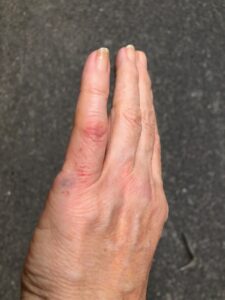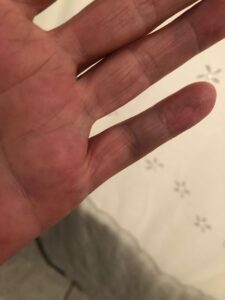Blame it on the dog. “The dog ate my homework.” “The dog ate my broccoli.”
Blame it on the weather. “I gain weight in the summer because I eat ice cream.” “I gain weight in the winter because I eat a lot to keep warm.”
Blame it on your health. “I’m healthy, I should be grateful.” “My health isn’t good enough to do that.”
Blame it on time. “I don’t have time to do that.” “There isn’t enough time in the day.”
Blame it on the sun or blame it on the darkness. “The glare from the sun caused sudden blindness.” “The lights from that other car caused such a glare, I ran off of the road.”
Blame it on lack. “I don’t have___, so I can’t___”. “If I only had___, then I could___”
Blame it on the job. “I was so bored, I had to quit.” “I couldn’t stay in such a high stress work environment.”
Blame it on the doctor. “He asks too many questions and talks the whole time.” “She barely examined me and was all business.”
Blame it on the preacher. “She uses no scripture and just tells stories.” “He uses scripture after scripture and doesn’t relate it to ordinary life.”
Blame it on your intelligence. “I’m too smart to do that.” “I never thought I was smart enough to do that.”
Blame it on your parents. “They never taught me any better.” “They made me___”
Blame it on your partner. “He or she made me feel___”. “I always had to…but he/she never___”
Blame it on Monday. “Rainy days and Monday’s always get me down.” “It’s a Monday and a half, I can’t get anything right…done…today.”
Blame it on Friday. “I’m going home early. It’s been a long week.” “I can’t make a sale today for the life of me because everyone has already checked out for the weekend.”
Blame it on money. “If I had the money, I would___”. “I don’t have enough money for___”
Blame it on the seasons. “I can’t exercise because it’s winter.” I can’t exercise because it’s summer.”
Blame it on your neighbor. “They’re over here too much.” “They never come around.” “They’re too perfect.” “They’re a mess.”
Blame it on the school. “They should teach___in school.” “They try to teach everything but the basics.”
Blame it on someone, anyone else. “It’s your fault that I___”. “Why do you always, never___?”
Blame it on yourself. “It’s my own fault that I___”. “It’s always me to blame for everything___”
Blame God or fate. “This is the way it’s supposed to work out.” “Only God knows.” “It’s God’s will that___”
Why do we blame? Maybe it’s to preserve our self-esteem and avoid awareness of our flaws and failings.
Maybe we believe rigidly on blatant cause and effect. We either don’t consider or quickly dismiss an infinite number of possible variables in between.
Maybe because there is less effort in blaming someone else than in accepting responsibility and changing myself. I’d rather take the easy path and blame them.
Or, maybe and similarly, it’s easier to lie (even to yourself), and blame someone else. All the while we’re spending a lot of wasted time covering the lie and hoping we don’t get caught.
Remember, it has been said that “the path is wide to destruction, and many are on it. But the gate, or opening to life is narrow and few have chosen it” (Matthew 7:13-14 paraphrased).
Choose life and stop playing the blame game. And, don’t blame me!




